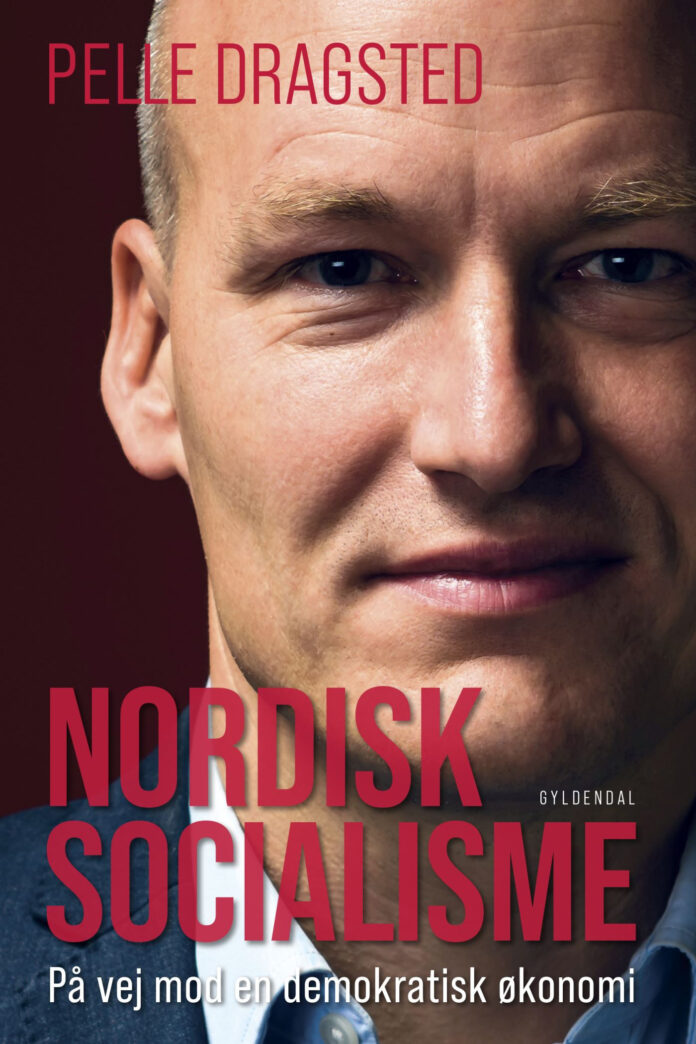(THIS ARTICLE IS MACHINE TRANSLATED by Google from Norwegian)
"We have talked enough about socialism. Now we have to create it. " – It could be the end of any May Day speech. But this is how Pelle Dragsted ends his book Nordic Socialism with the subtitle Towards a democratic economy. The book will be published on International Workers' Day.
Pelle Dragsted has for several years been an inspiring voice in Danish radio and TV when he challenged the traditional economic and fiscal dogmas. He has worked as an adviser to the Unity List in the Folketing before he in the years 2015-2019 himself sat in the Folketing as fiscal policy spokesman for the party.
Dragsted suggests that the entire left finds inspiration in the peasants 'cooperative movement and the workers' cooperatives.
It will be known to most readers of MODERN TIMES that the Unity List was formed (1989) as a collection of the old Stalinists in the DKP, the Trotskyists in the Socialist Workers' Party and the 68ers who joined the Left Socialists. Pelle Dragsted (1975), who comes from a DKP background and has been an activist for a while («Global roots»), has in and for the Unity List represented a new generation in the attempts to unite political diversity in the Unity List and on the left. But the "brotherhood" between such different directions in the labor movement as Stalinists, Trotskyists and the '68s has hampered the political discussion and development of the Unity List.
The Unity List's heirlooms
At the center of Dragsted's 1 May book are a number of proposals for how employees can get a larger share of the «community cake», both in the form of material benefits and by locking employees into the companies' executive rooms.

With the book, Dragsted presents a proposal for increased democracy, called «pluralist socialism». With a focus on the management level (in the Folketing and in the companies), the Social Democratic Anker Jørgensen government's and trade union bosses' proposal for economic democracy and democratic ownership – from 1973. The essence of the proposal is «to democratize ownership and the economy so that the economic sphere does not continue with to stand outside democracy, but as far as possible governed by the fundamental principles of democracy. " And further «where we get democratic action to solve the climate».
When the content of capitalism is to be defined, the author looks up in the large Danish encyclopedia. The references to individual parts of the Unity List's legacy seem repressed: the role of the party, the program, non-reformist reforms, self-organization, criticism of the bureaucracy, the dual power situation, imperialism. Instead, Dragsted proposes that the entire left find inspiration in the peasants 'cooperative movement and the workers' cooperatives to re-launch the old idea of economic democracy – from the time before the economic and cultural entry of neoliberalism: «Both social democrats and the revolutionary left perceive (..) capitalism as a total and all-encompassing system that shapes our entire economy. There is nothing outside. Everything is capitalism. And socialism is something absent and future ", writes Dragsted.
For socialism lives – in Dragsted's version of socialism. Rather than relating to a vision of the future – which has so far proved impossible to realize – the already existing socialism (!) Must be made something present. Here and now, within the given institutional framework, we must continue to work and drop the question of power in society. Step by step, we can – according to Dragsted – in this way make our society more socialist and less capitalist by expanding the areas of the economy that are democratically owned and managed. Like this!
Employees' co-ownership
After the devastation of World War II, a capitalist economy could enable a number of improvements for the common people. No real system change came into question – as the entire population experienced material progress. As a kind of climax for this development, the Social Democratic Anker Jørgensen government presented a bill in 1973 on the right of employees to co-ownership (economic democracy) in the Folketing. And later, the chairman of the employees' organization (LO) at Thomas Nielsen at the LO congress in 1979 could then proclaim that the employees had won «to hell».
This is the period from World War II to the 70s Pelle Dragsted likes to reflect on. Here you will find the contours of his desired future project – with the establishment and stabilization of many democratic ownership relations. Since then, things have not gone well for many of the often bureaucratic cooperatives and cooperatives. Dragsted himself describes how "the attack on the public democratic sector began in the late 1970s" – with a retreat of the many bastions the wage earners had acquired.
The book presents a program for a democratic economy: Public banking, public land ownership, more welfare – but without making the state dominant. Dragsted believes that «sustainable change presupposes a fundamental democratization of ownership in the economy». He also believes that too strong a focus on the state will lead to bureaucracy, top management and lack of democratic participation.
So different directions in the labor movement like Stalinists, Trotskyists and the 68s.
But Dragsted refrains from articulating the hierarchies on which history and culture to some extent hang (with patriarchy as the dominant one). Dragsted also has no comments on the formation and education of the social movements that are to be responsible for a possible transition to sustainability. For what historical experiences do the new movements bring with them that can support personal authority and judgment? To be able to contribute to and further develop the UN's "think globally, act locally"? For the establishment and realization of the local basic democracy?
I ask: Is Dragsted in the process of staging itself as a future Social Democratic member of parliament?


